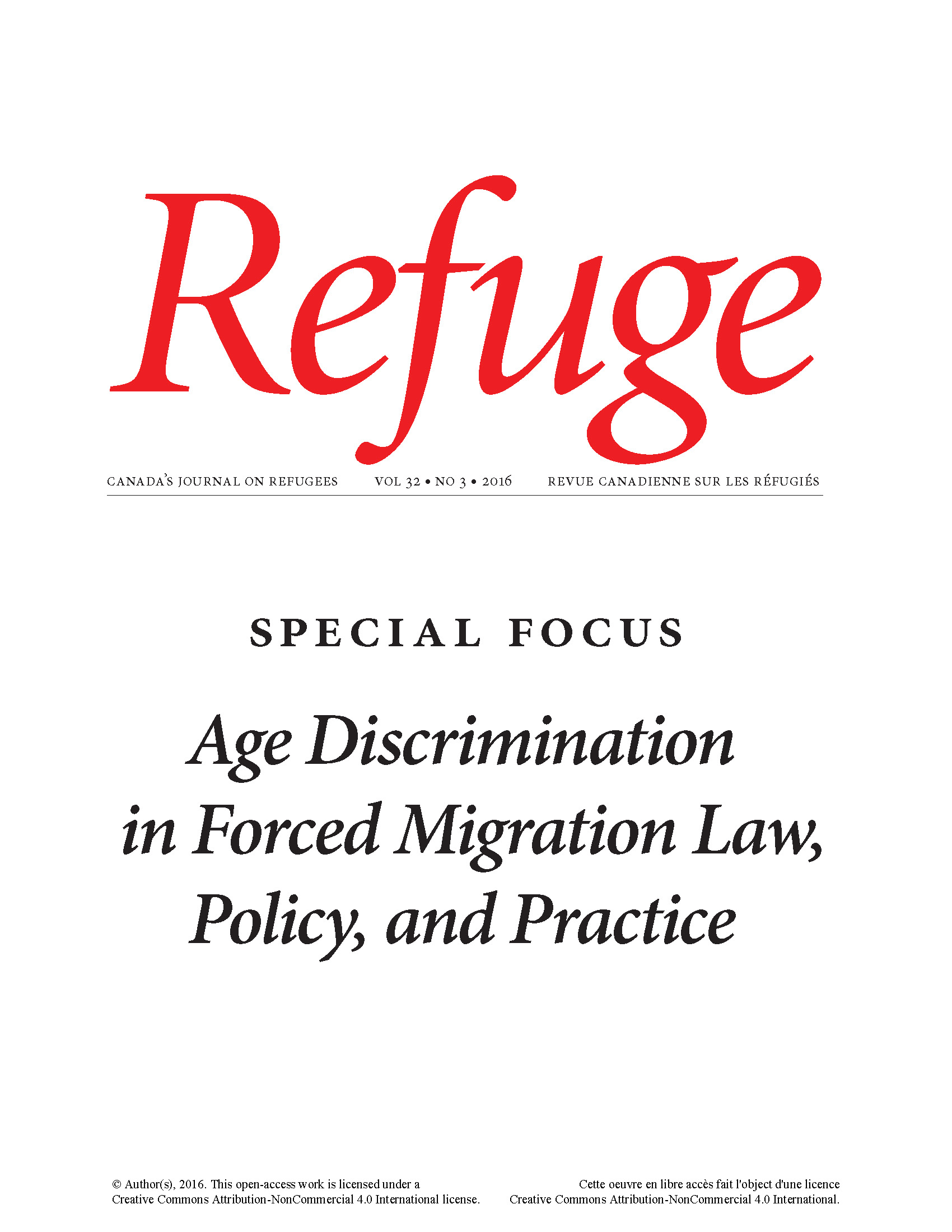The Stories We Tell about Refugee Claimants: Contested Frames of the Health-Care Access Question in Canada
DOI:
https://doi.org/10.25071/1920-7336.40370Keywords:
Canada, Interim Federal Health Program, health care access, refugee claimants, frame theory, health rights, advocacy, Canadian Doctors for Refugee CareAbstract
A contested issue is the extent to which refugee claimants should have access to health care in Western host countries with publicly subsidized health-care systems. In Canada, for a period of over fifty years, the federal government provided relatively comprehensive health coverage to refugees and refugee claimants through the Interim Federal Health Plan (IFHP). Significant cuts to the IFHP were implemented in June 2012 by the Conservative federal government (2006–15), who justified these cuts through public statements portraying refugee claimants as bringing bogus claims that inundate the refugee determination system. A markedly different narrative was articulated by a pan-Canadian coalition of health providers who characterized refugee claimants as innocent victims done further harm by inhumane health-care cuts. This article presents an analysis of these two positions in terms of frame theory, with a greater emphasis on the health-provider position. This debate can be meaningfully analyzed as a contest between competing frames: bogus and victim. Frame theory suggests that frames by nature simplify and condense, in this case packaging complex realities about refugee claimants into singular images (bogus and victim), aiming to inspire suspicion and compassion respectively. It will be argued that the acceptance of current frames impoverishes the conversation by reinforcing problematic notions about refugee claimants while also obscuring a rights-based argument for why claimants should have substantial access to health care.
Metrics
Downloads
Published
How to Cite
Issue
Section
License
Copyright (c) 2016 Jesse Beatson

This work is licensed under a Creative Commons Attribution-NonCommercial 4.0 International License.
Refuge authors retain the copyright over their work, and license it to the general public under the Creative Commons Attribution-Non Commercial License International (CC BY-NC 4.0). This license allows for non-commercial use, reproduction and adaption of the material in any medium or format, with proper attribution. For general information on Creative Commons licences, visit the Creative Commons site. For the CC BY-NC 4.0 license, review the human readable summary.







